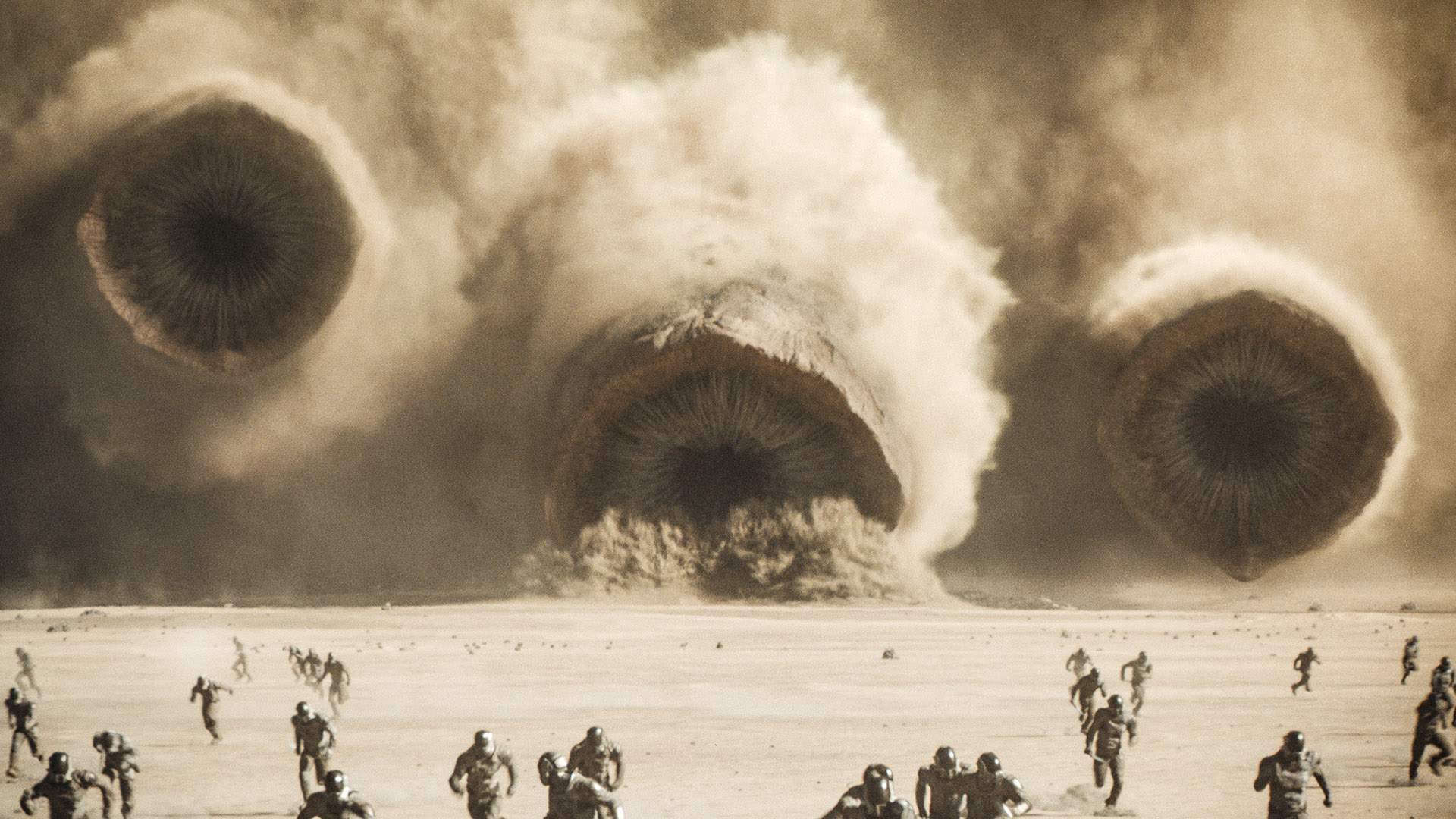Bringing Arrakis Back to Cinemas After Winning an Oscar: Australian Cinematographer Greig Fraser Talks 'Dune: Part Two'
"You become an expert in the dunes," explains the Aussie talent, who started his career two decades ago in homegrown shorts, and was also Academy Award-nominated for 'Lion'.
Drawing attention away from any one of Timothée Chalamet (Wonka), Zendaya (Euphoria), Javier Bardem (The Little Mermaid), Rebecca Ferguson (Silo) or Josh Brolin (Outer Range) isn't easy, let alone from all five in the same films. And yet, the desert expanse that's roamed across by the stars of Denis Villeneuve's Dune franchise demands notice above everyone and everything. The person guaranteeing that viewers not only spy the sand stretching as far as the eye can see, but feel its impact: Australian cinematographer Greig Fraser. On both Dune: Part One and Dune: Part Two, his work for the Blade Runner 2049 director ensures that audiences spend ample time with Chalamet and company as well. The two movies are as intimate as they are epic. But these pictures couldn't exist without their namesake receiving such prominence. Sand isn't just sand in Dune, or to Fraser.
With Dune: Part Two, Frank Herbert's books now reach cinemas for the third time — David Lynch's 80s adaptation came first — but they couldn't value golden grains more highly even when they were only playing out in readers' imaginations. In the Dune realm, all that siliceous substance is spice, also known as melange. It powers interstellar travel, extends lives and expands consciousness. It's only found on Arrakis, the planet that Chalamet's Paul Atreides is sent to live on in Dune: Part One when his father (Oscar Isaac, Spider-Man: Across the Spider-Verse) is installed as its new ruler. It's hardly astonishing, then, that past overseer Baron Vladimir Harkonnens (Stellan Skarsgård, Andor) isn't thrilled about losing control of such a treasure trove. It's similarly unsurprising that the Fremen, Arrakis' Indigenous population, is determined to fight for their home and destiny.
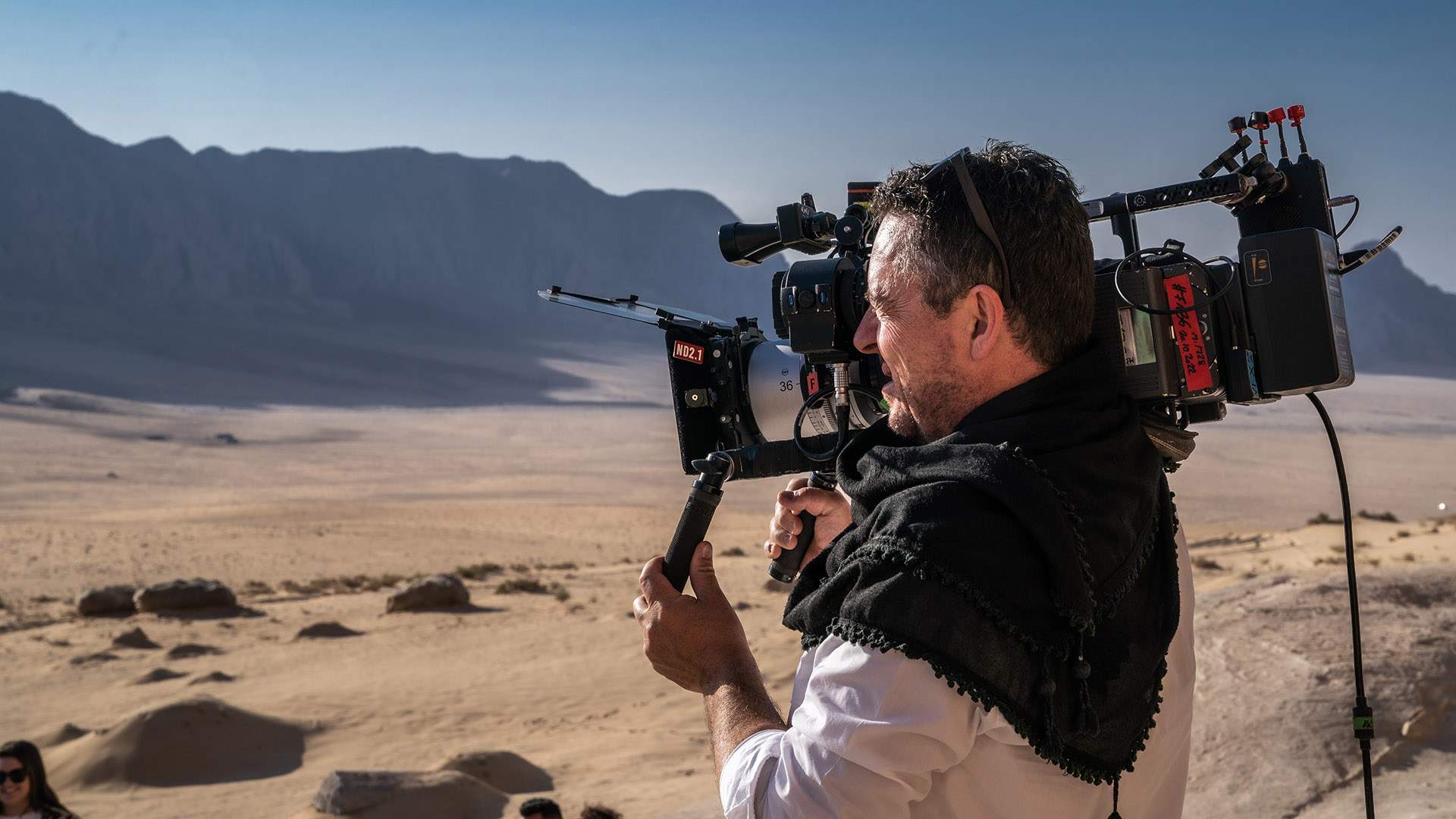
Spinning this story for cinema was always going to be a sandy endeavour, with Fraser's skills pivotal. For Dune: Part One, which stunned with its spectacular desert-swept visuals and set the bar stratospherically high for its sequel, he won the Best Cinematography Oscar. "You become an expert in the dunes," he tells Concrete Playground about not just making the first film, but also returning for Dune: Part Two. He didn't shoot the initial flick with its follow-up in mind, however — or even dream back when he lensed his first-ever feature, 2005's Jewboy, that this is where his career would take him, or to an Academy Award-nomination for Lion before his Dune win. Bright Star, Let Me In, Zero Dark Thirty, Foxcatcher, Rogue One: A Star Wars Story, The Mandalorian, The Batman, The Creator: they're all also on Fraser's resume.
"It's funny because, it's going to sound a little bit weird, but I just didn't think full stop," Fraser shares about his mindset when he was initially starting out. "Whenever I was doing a movie when I was younger, or even now, frankly, it's one foot in front of the other as opposed to a master plan. I wish I was smart enough to be in that Dune world of plans within plans, and manipulating events to my end. But really what I was just trying to do was just trying to do the best job of the thing that was sitting right in front of me."
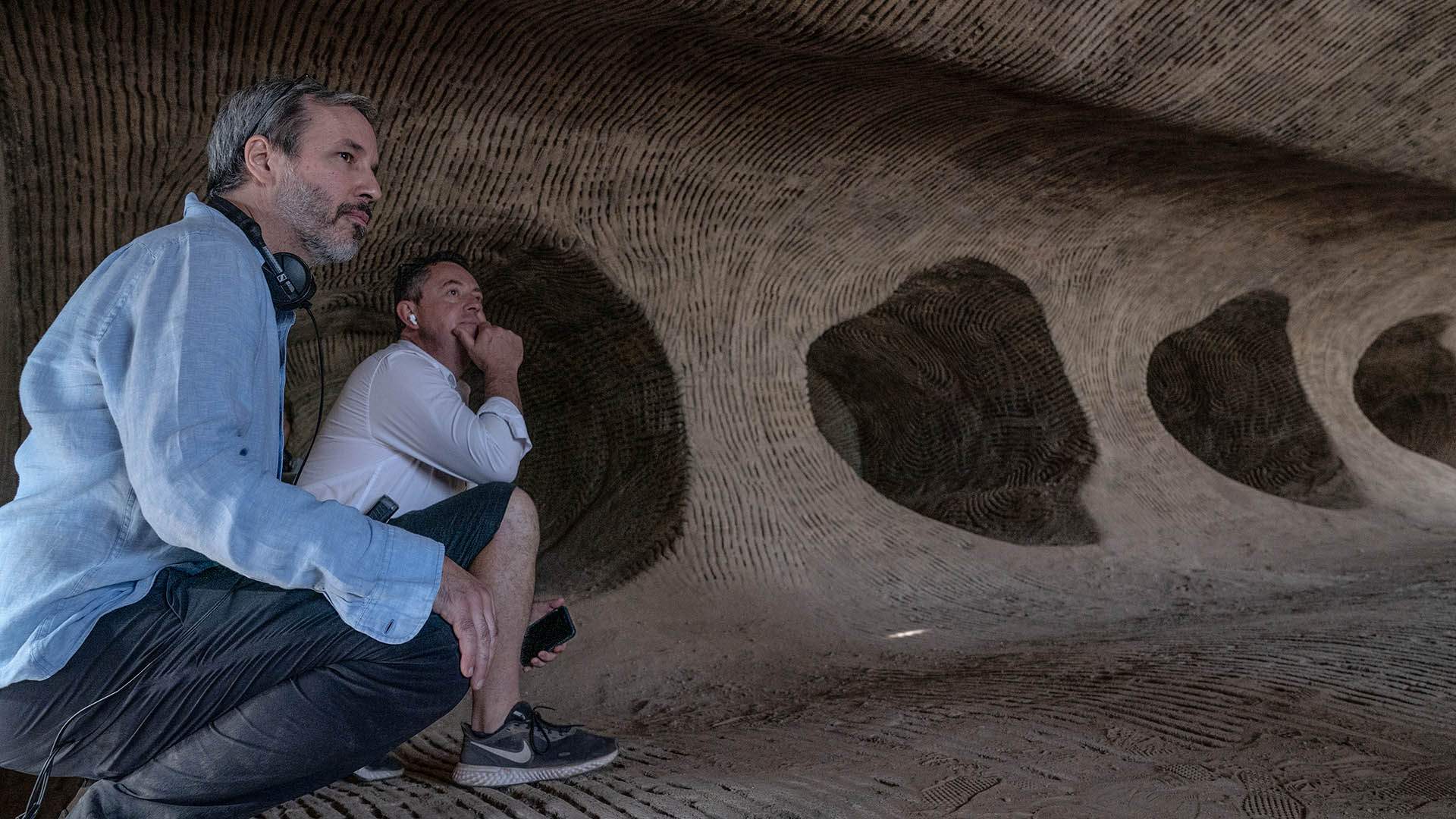
"So no, I can tell you that right now, when we were filming in Bondi for that movie, on a bus in Bondi" — for Jewboy, that is — "that I categorically was not ever thinking about the possibility of doing something like Dune. That was never on my radar. Obviously I knew what I liked, and I knew the films that I loved. And it just became a a race — or a game, I should say — of doing what I love doing. And then if I was doing what I love doing, and then doing the best job that I could, then hopefully that then leads to the next thing that I love doing. And that's kind of how the career's gone. It's a little bit of a simplistic way of describing it, but that's a genuine, honest take on it," Fraser continues.
To say that his career is going well is an understatement. Now that Fraser has returned to Dune — including showing moviegoers what Arrakis and all of its sand looks like under an eclipse, and also bringing the planet of Giedi Prime, which dwells beneath a black sun, to the screen — he'll next shoot the Dark Knight again on The Batman Part II. We chatted with the cinematographer about his work on both Dune films to-date, his Oscars recognition, how daunting it is to try to back up his Dune: Part One accolades on Dune: Part Two, his new expertise on sand dunes, taking Arrakis and Giedi Prime from the page to the screen, and more.

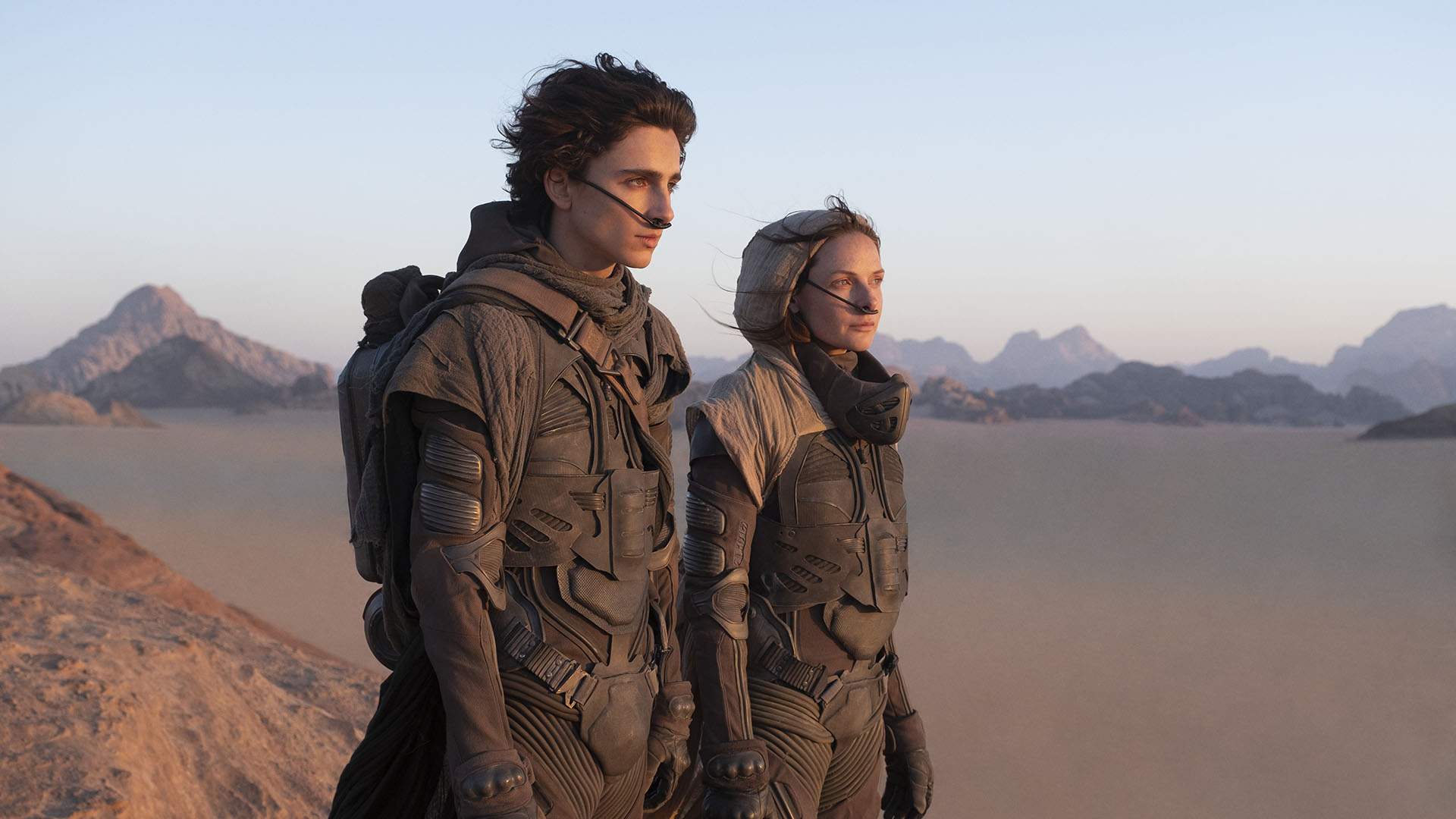
Dune: Part One. Image: Chiabella James. Copyright: © 2020 Warner Bros. Entertainment Inc. All Rights Reserved.
On Lensing Dune: Part One Without Presuming That Fraser would Be Returning on Dune: Part Two
"You never take anything for granted, and doing a movie is a miracle. People talk about us as a species having evolved, that's kind of a miracle — because there's a million things that could have gone wrong with a film getting up and going, but then there's another million things that could have gone wrong with me being able to do it.
I could have been committed on another project. Denis may have chosen to to use another cinematographer, as is his right and he should and could, to create something different. Because that's what he he does — he casts his crew like he cast his actors. And so there's a whole myriad of reasons why I may not have been able to do Part Two.
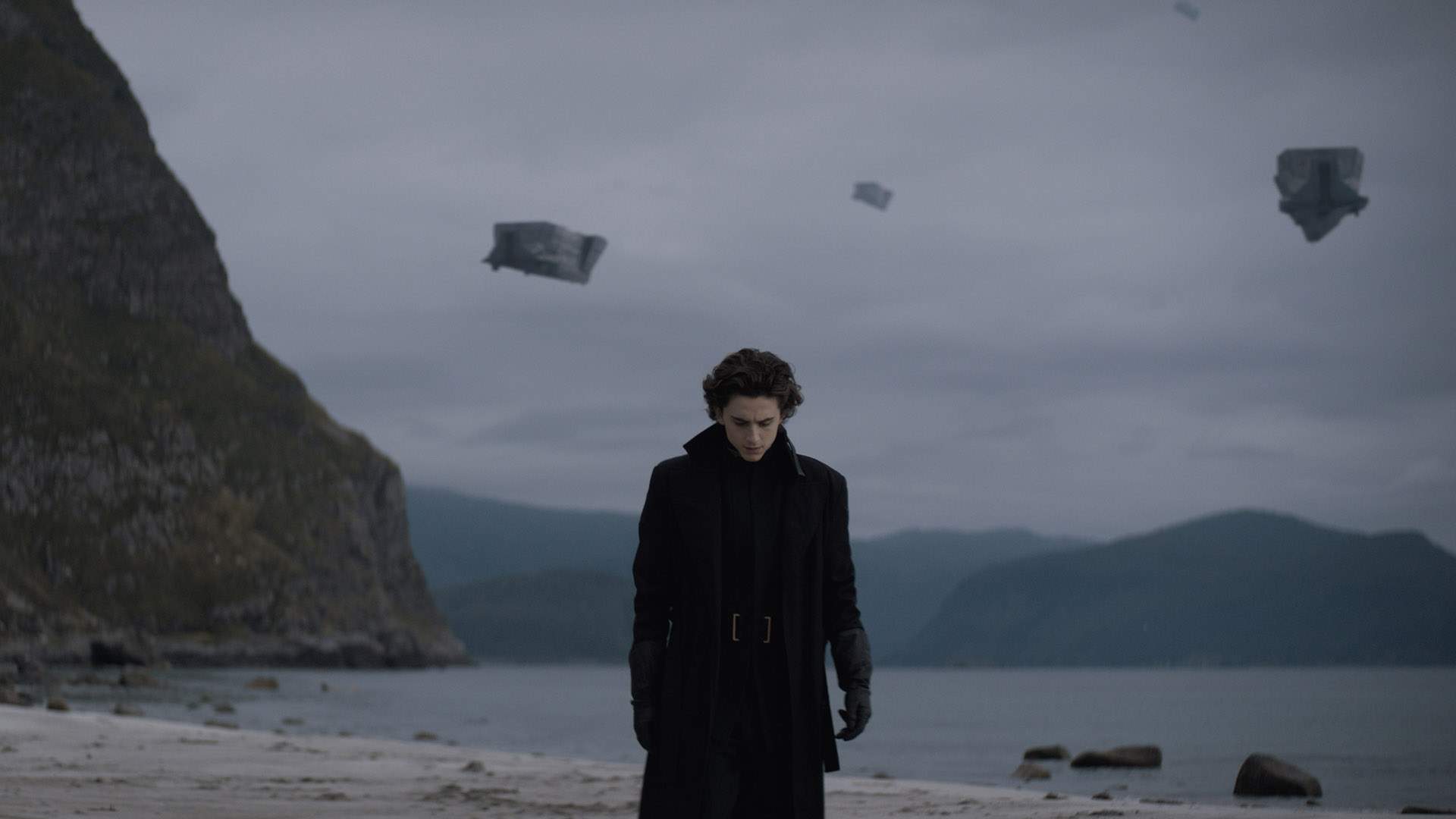
So I wasn't necessarily doing Part One on the proviso that I do Part Two. I was trying to make — as Denis was — Part One as good as possible, and do the best job for my director as possible.
Then, with Part Two — obviously, we knew there was more of the story, but it's not dissimilar to to something like Rogue One. You know there's more to the story because the Star Wars universe is bigger than just Rogue One, but you don't make Rogue One thinking there's going to be another one or a series. You make the best thing you can."

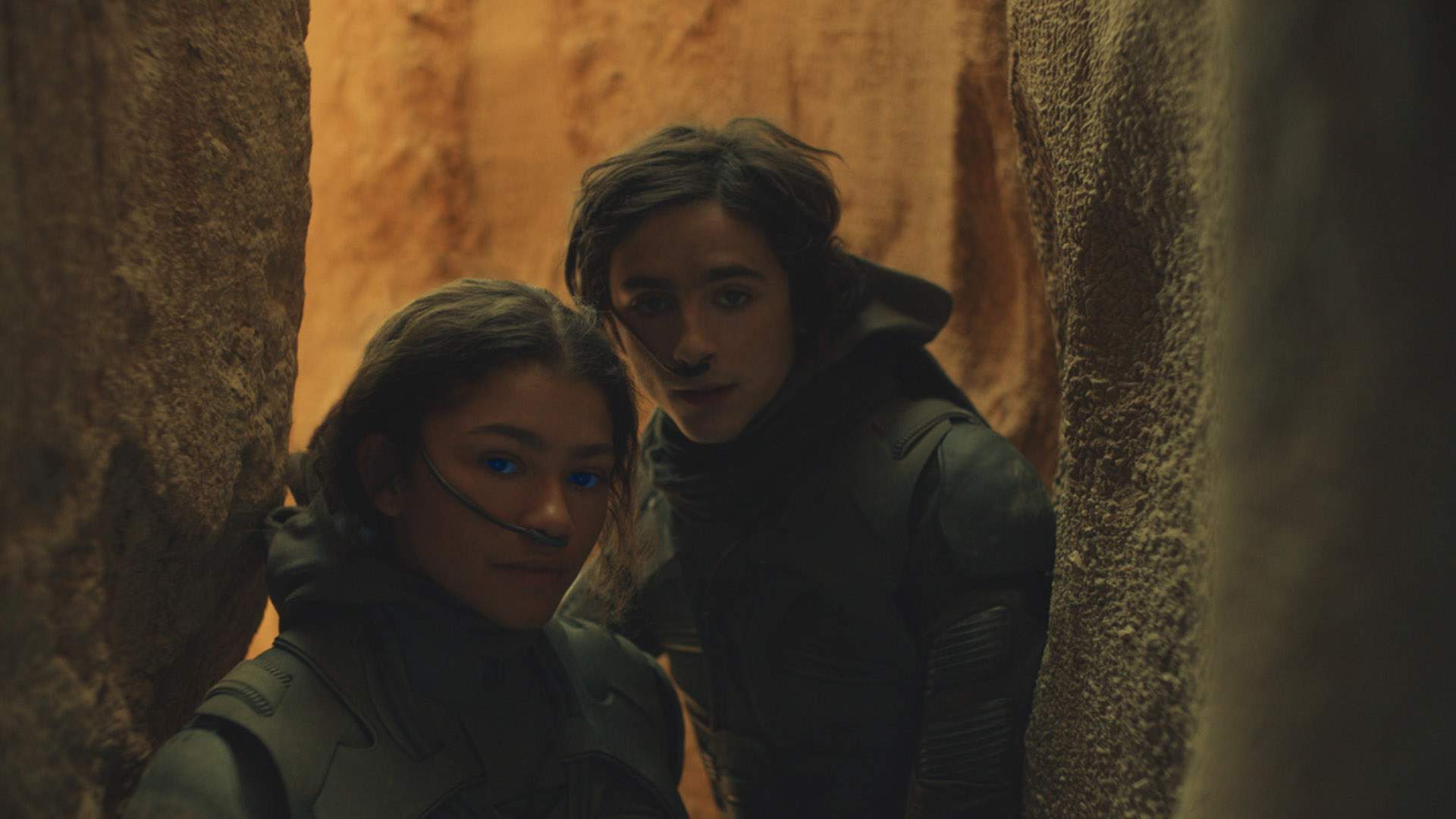
On Winning an Oscar for Dune: Part One — and Receiving a Nomination for Lion Before That
"I love Lion, as I know a lot of people do. There's a lot of love out in the world for Lion. So, to have done that — the recognition is interesting, because the recognition from my peers is really important, and particularly peers that I respect and know.
There's been a few events in my life where I've been given a pat on the back by people that I respect, and that's what effectively the Oscars are. A nomination for that is that exact thing. It's a pat on the back by your peers. And the win itself is, of course, icing on the cake, but that's not the most important thing. The most important thing is the nomination, because it basically says that of the movies of that year, that your peers feel like you are in the top five — and that's a big deal.
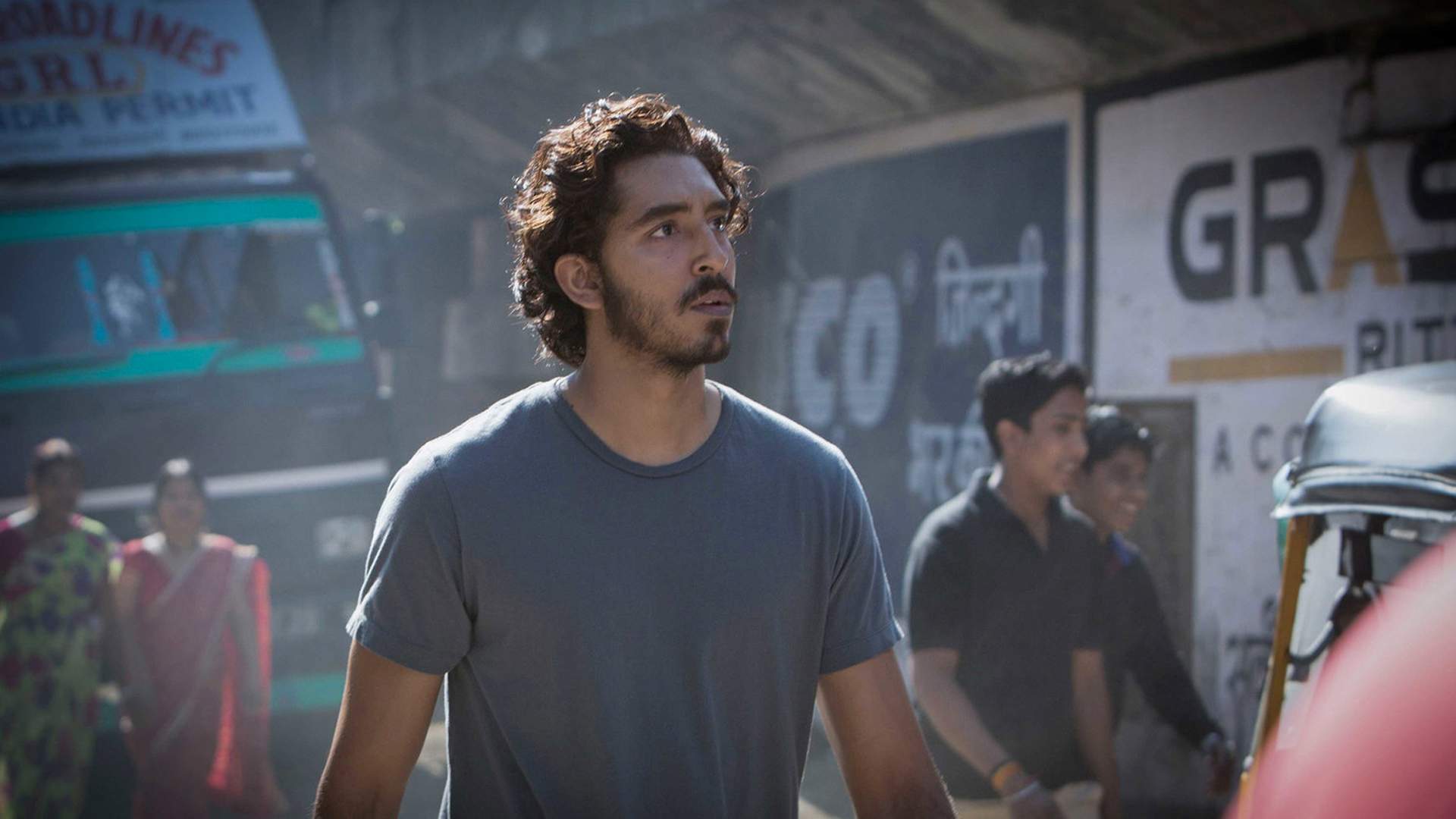
For a kid from Melbourne who used to shoot short films and music videos with his buddies, to have made the top five film of the year for two years, I guess, now — two nominations — that's a big deal to have kudos from your peers, that I think's quite, quite fantastic.
And also as a pat on the back to not just me, but also my director. Because if you recall in that year, Garth Davis directed Lion and that's a pat on the back to him. And Denis in the year that Dune was nominated, it's a massive pat on the back to him."

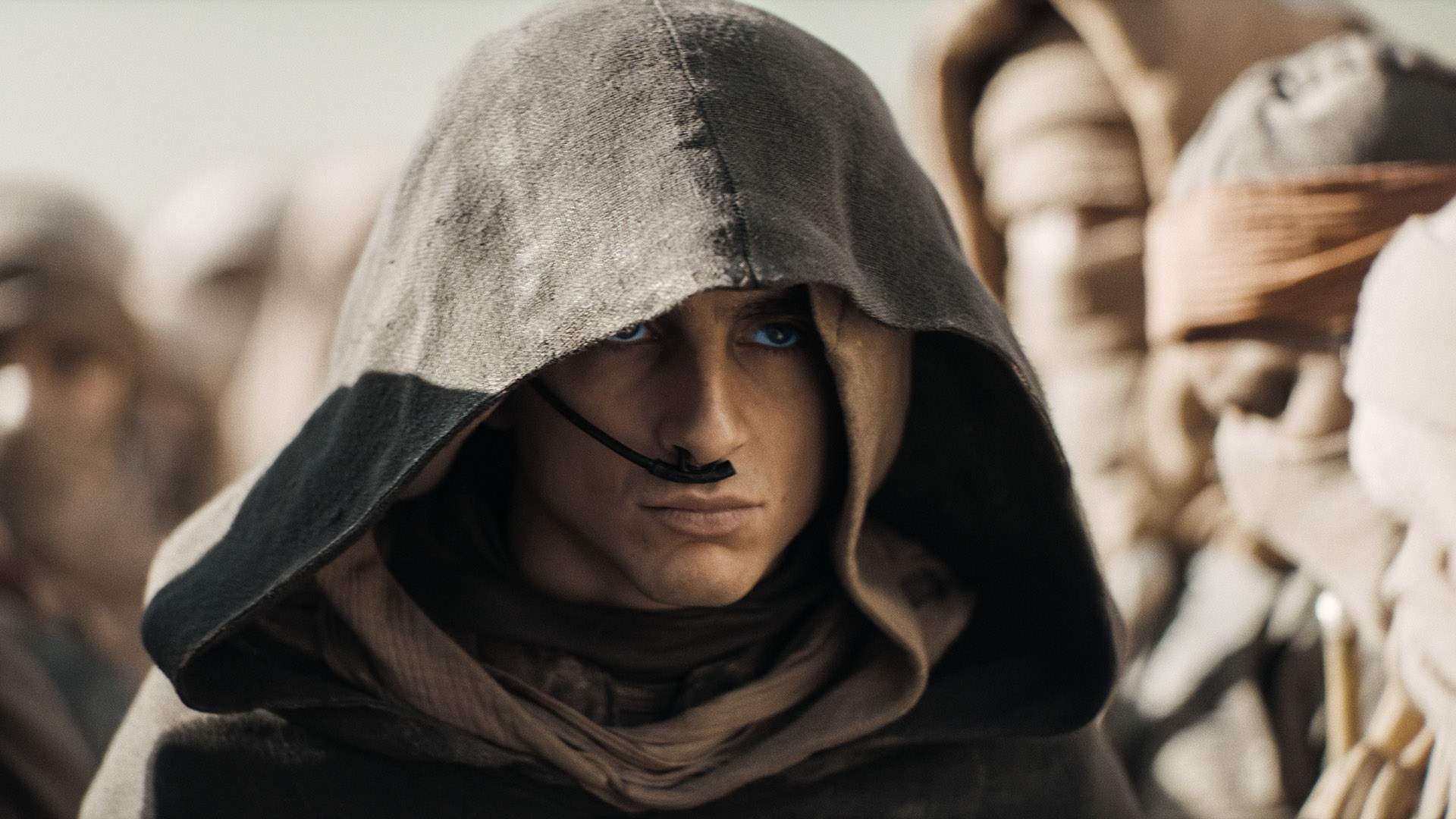
On Being Daunted on Dune: Part Two After the Accolades and Acclaim Earned by Dune: Part One
"Suddenly there's hype behind it. If it'd just been people going 'yeah, good one, that's great', well Part Two, you've got nothing to lose. But going into Part Two for us meant that we had everything to lose. Suddenly the stakes where a thousand times higher because everybody was going 'well, that won all these awards, this has got to be better'.
Now, I will say just on the record, there have been many, many movies that have not won Academy Awards that are incredibly deserving — and there are many, many that have that aren't. So winning an Academy Award, in my opinion, is not always for the best film, out of respect for other films that don't win.
But there is an inbuilt kind of consensus that that becomes the best film of the year. So therefore we were like 'alright, well all of us basically won that year'. Myself, and Patrice [Vermette, Foe] the production designer, and Paul [Lambert, First Man] the effects supervisor, and Joe [Walker, The Creator] the editor — we all kind of went 'gulp, we've got to make this better'.
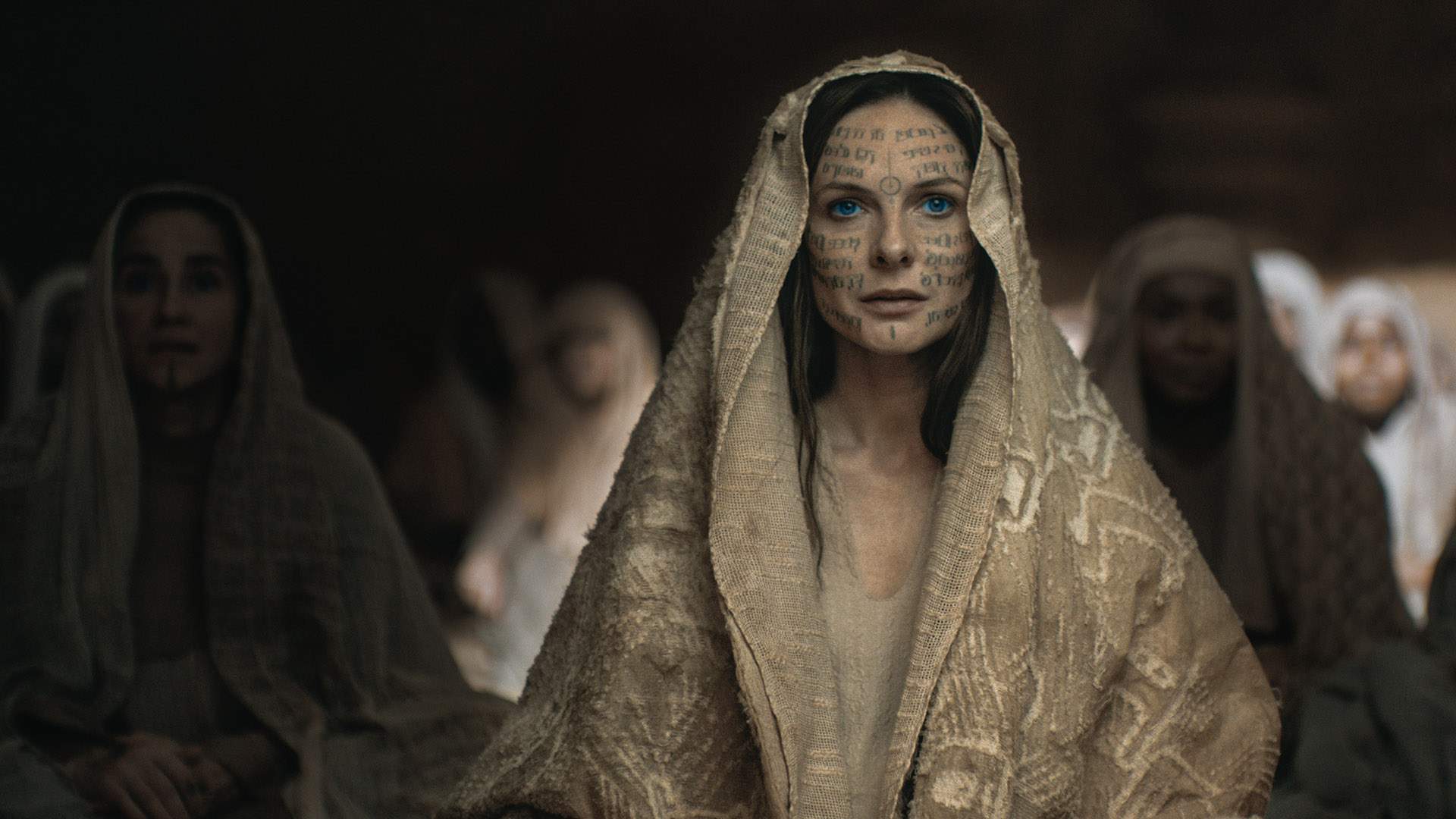
We want to make it better for ourselves anyway, and for the director anyway. But we're now like 'okay, now we've got to make it better better better better better'.
Again, regardless of what it does in the awards season, I feel like we've made it better. I think every department stepped up. I didn't think that was even possible, frankly — that the design could be any better than last time or the VFX could be better than last time. But it is. And it was. And we did. And it felt better."

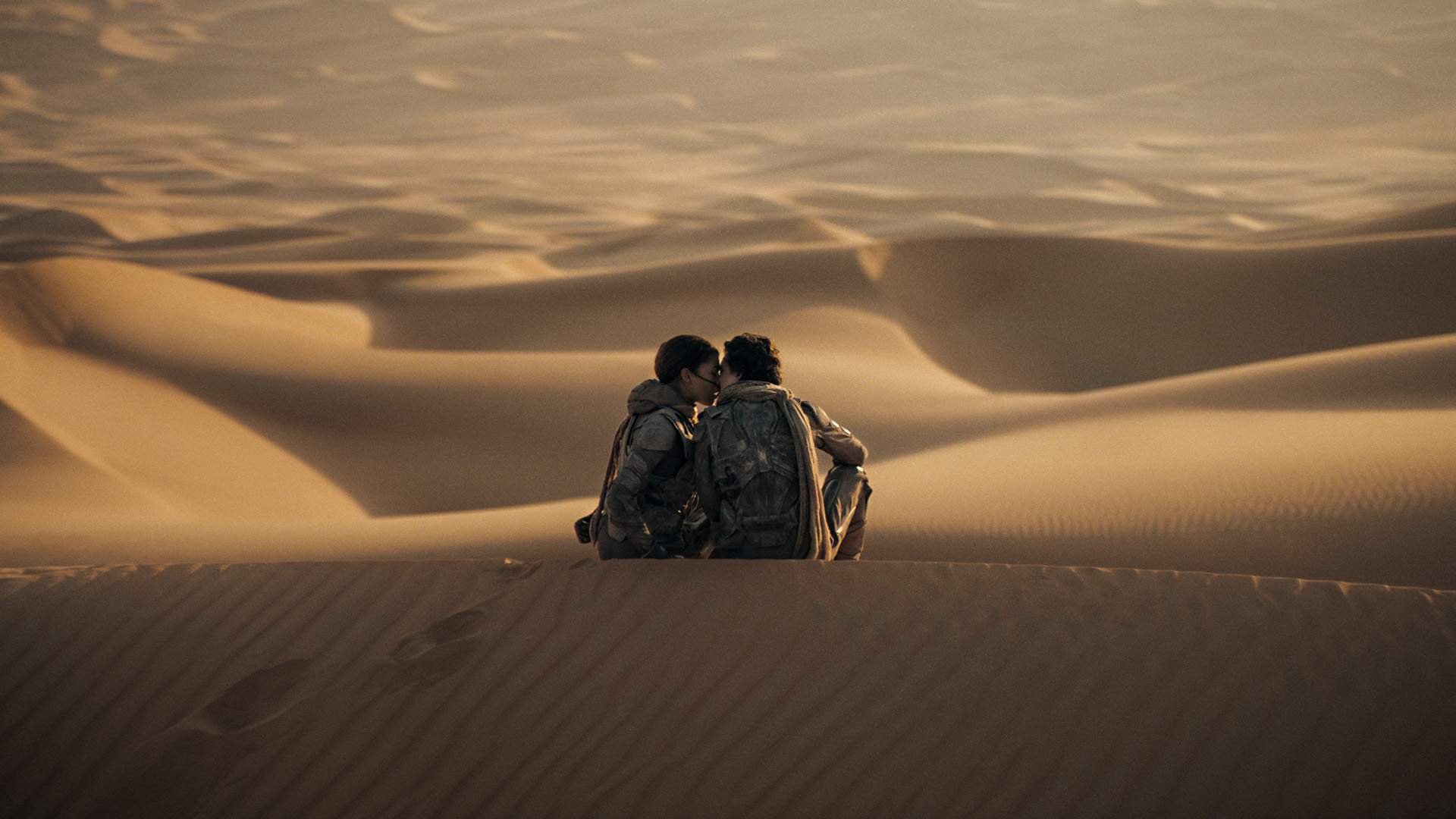
On Becoming an Expert in Sand Dunes
"What happens that I've learned — so here is the the masterclass of the sand dunes, if anybody wants to go out and shoot sand dunes — is that the time of day is critical.
So you might be scouting a place in the morning where the sun's coming from east and you might not love it. You might dismiss it as a location. But you're driving past there in the afternoon, and the way the sun works its way across the the tops of the sand dunes and backlights the wind, it can change the location massively.
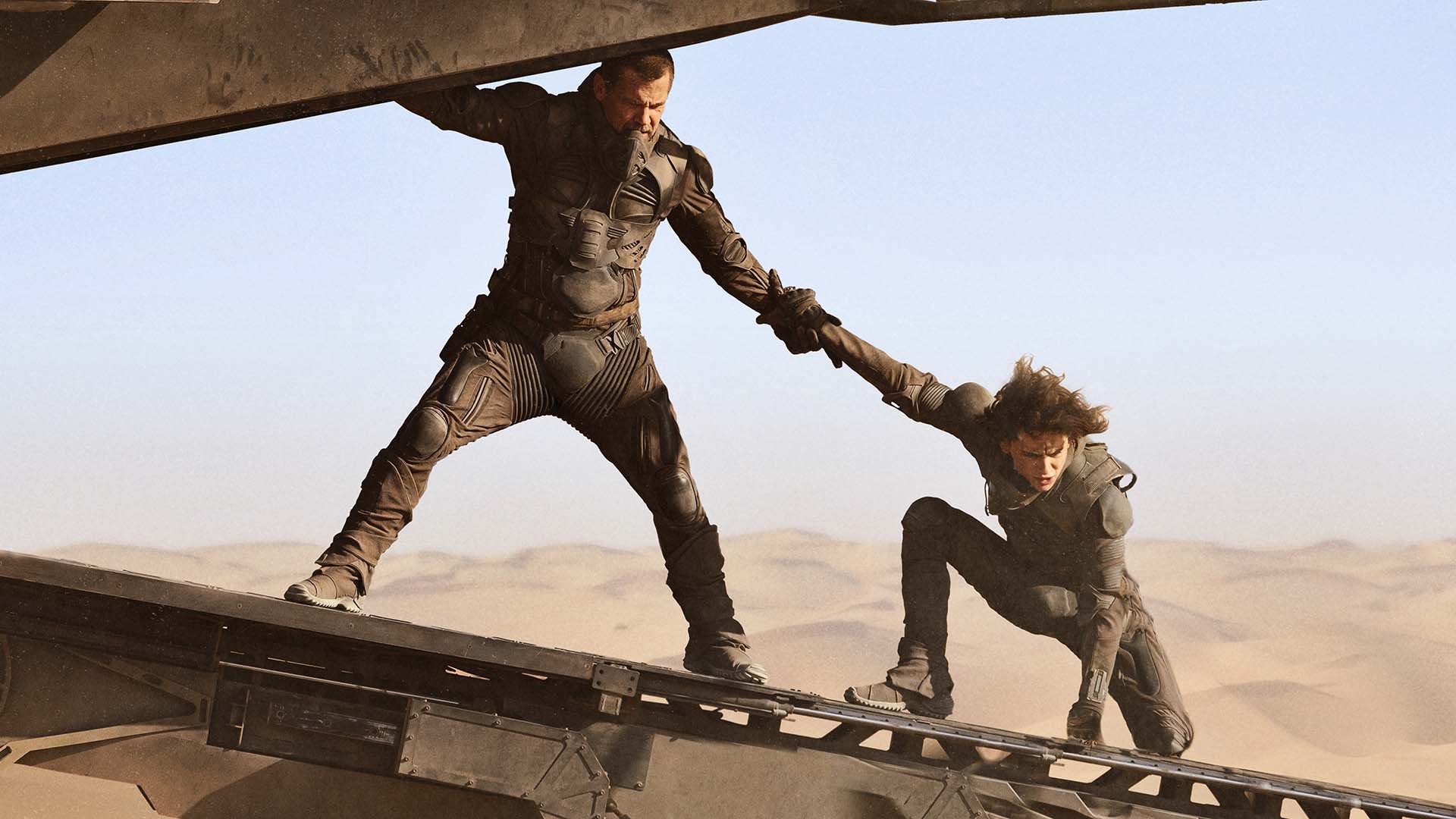
Often at the beginning of our journey, back in 2019–2020, we would scout at the wrong time of day — or we would scout at a time of day that we weren't shooting. And we soon came to realise that 'okay, when this is scheduled, let's scout when it's scheduled, and that's the afternoon'.
Which, in hindsight, is logical, and I'm surprised it even took us the couple of days it took us to figure that out. But yeah, I've become a bit of an expert when it comes to what the sand dunes are going to look like with the right light."

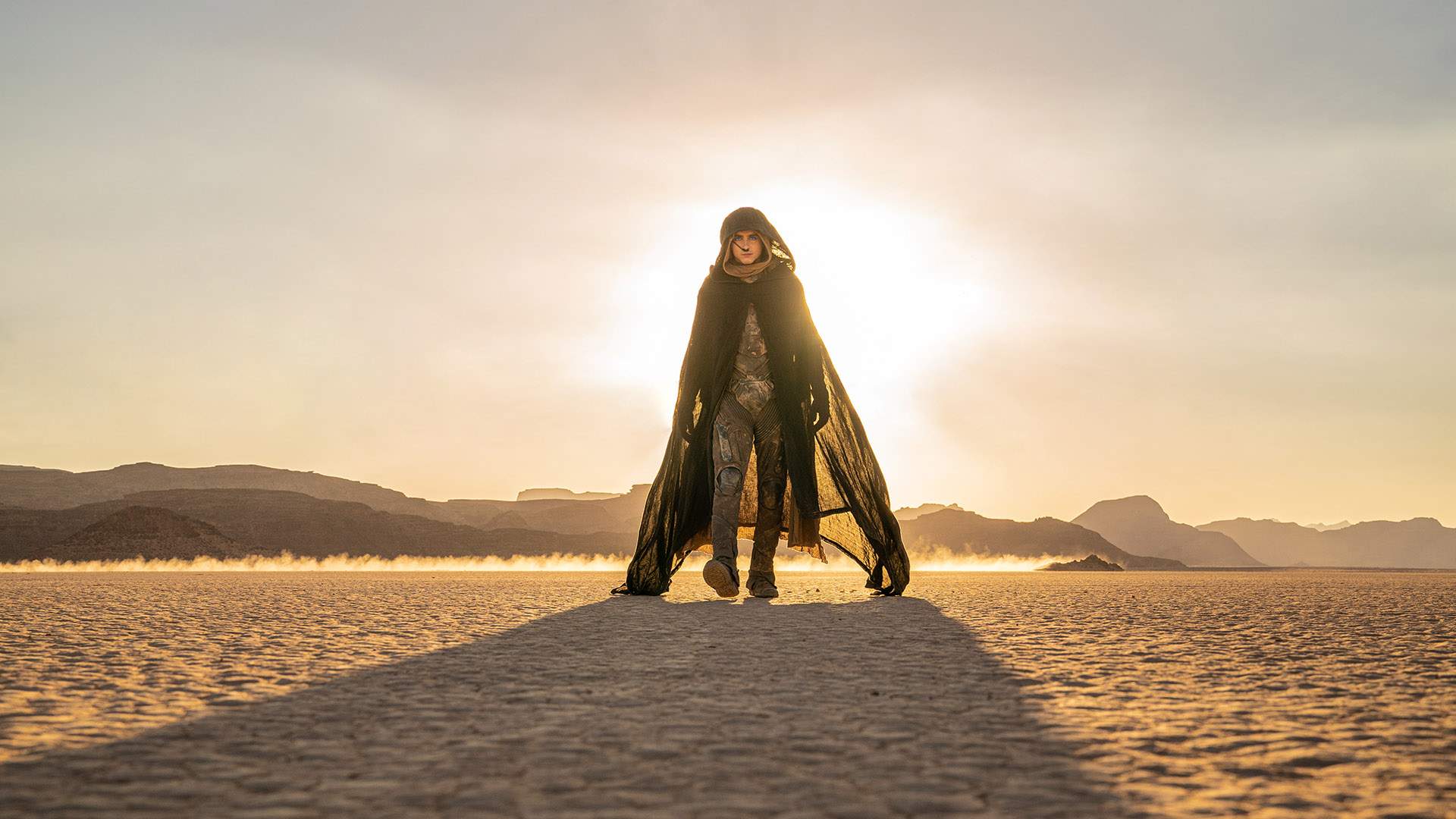
On Giving Arrakis a Different Colour Palette for Dune: Part Two
"We didn't want to start the movie the same way that that Part One ended. And it was a very deliberate, very deliberate process. Denis obviously had a really long time to think about this film — because even though I had done The Batman between the two Dune films, he had not. He was finishing Dune: Part One and he was preparing Dune: Part Two.
So he had a lot of time to think about it, and he came to me and said 'I don't feel like we should start this the same way we ended'. And he said 'should we consider doing this as a night scene?'. And you know, I read the script, and a night scene for that scene would have been technically really tough, in the desert with lights. It would have been not only tough — nothing was impossible, of course — but I don't think the end result would have been as good.
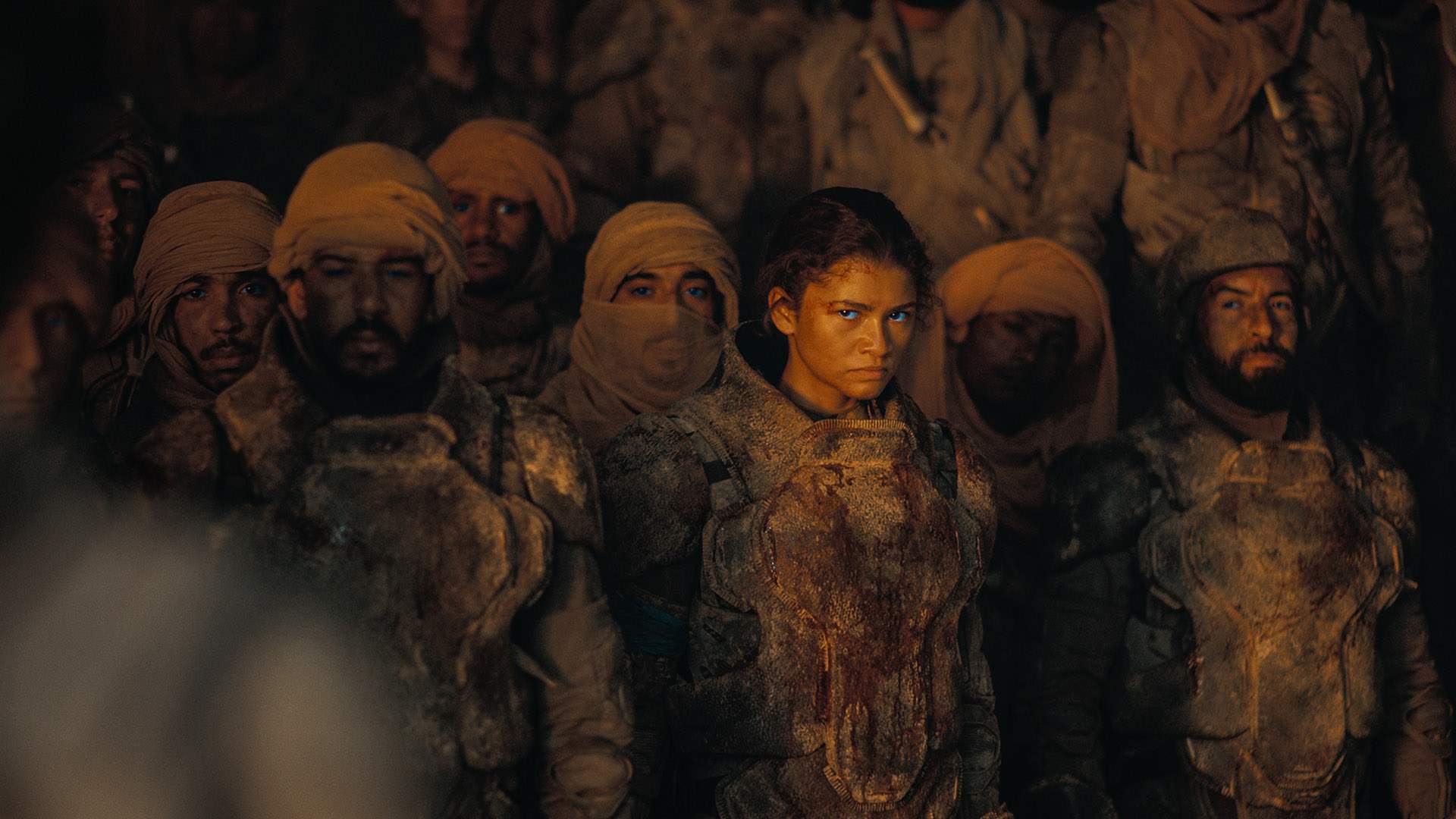
So we looked at day for night options. We looked at other ways to film it, to make it look different. And I found a filter that that cuts out a lot of blue and green light — not all of it, just a part of it, so it changes the spectrum, and it felt a little bit reddy-orange, but it still had colour. And we went 'perfect, that's what this world looks like when there's an eclipse'. So we said 'okay, we have the ability to to make an eclipse whenever we want'. And so we went 'let's start the film with an eclipse'.
The funny thing was, we didn't plan for this, but during our time filming that sequence there was actually an eclipse in Jordan. Not to that degree — but we did a shot, we had our splinter unit DP Christoph with the long lens filming the sun, and so he did film the eclipse. I think there might be shot of the actual eclipse that we filmed in the film."

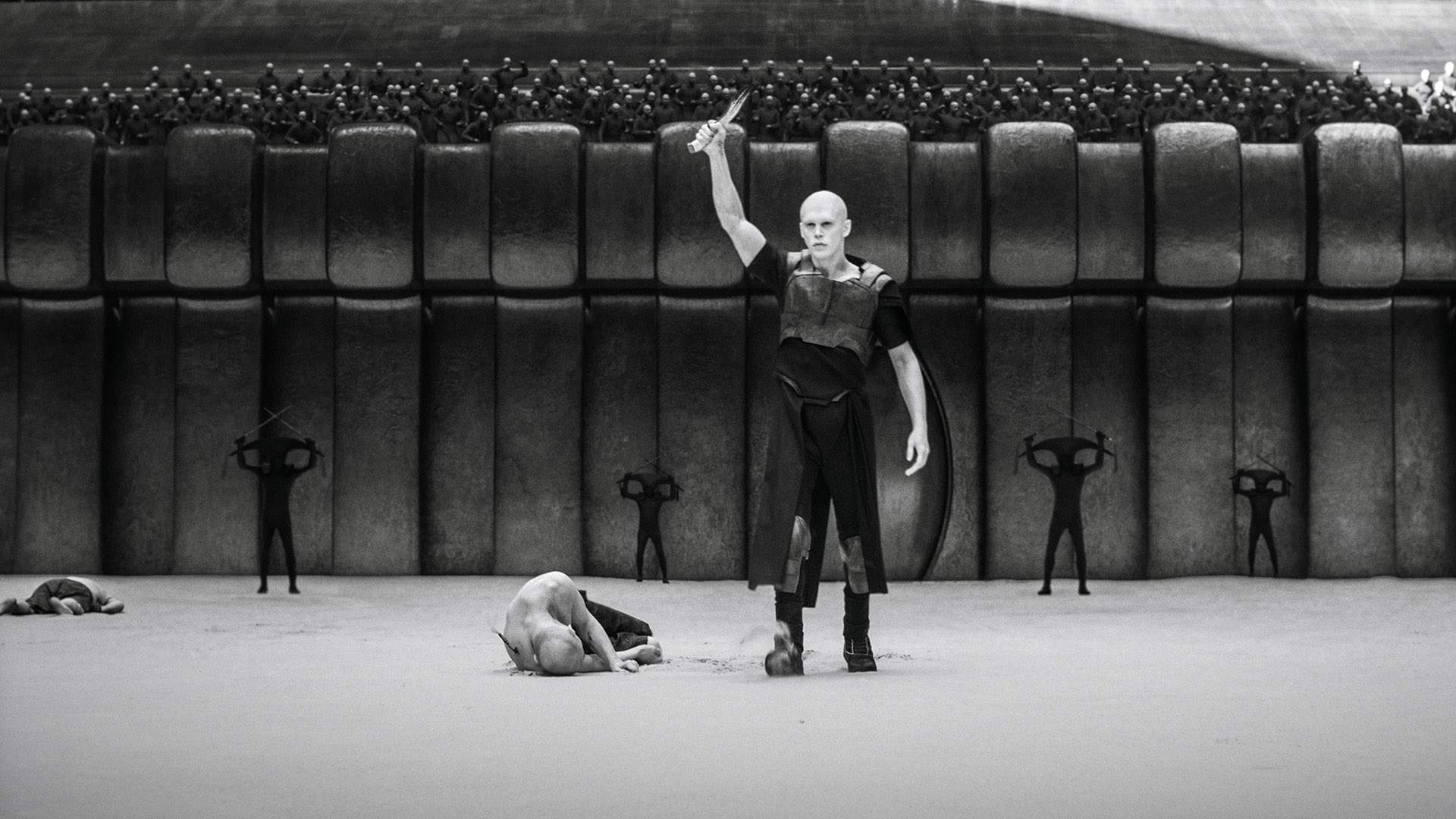
On the Striking Look of House Harkonnen's Giedi Prime
"Again, it's conversation with Denis. So Denis said 'listen, there's a fight scene. Feyd-Rautha [played by Elvis' Austin Butler] is gladiator, and there's a fight scene, and it's outside in a gladiatorial environment — but it can't look like Arrakis'.
You think about all the gladiator films you've seen, and they're all on sand, aren't they? And they're all under the sun. So you would be confused if it looked like Gladiator or something, because it would be too similar to Arrakis.
I'm not sure if this is in the book or not, but Denis wanted to create a a black sun for that world. And I was like 'wow, okay, what does the black sun do? Does it suck light out? Well, if it does, then it's black. It's a black hole.' But we were like 'no, it sucks the colour out. It emits an infrared light, but it sucks all the colour'.
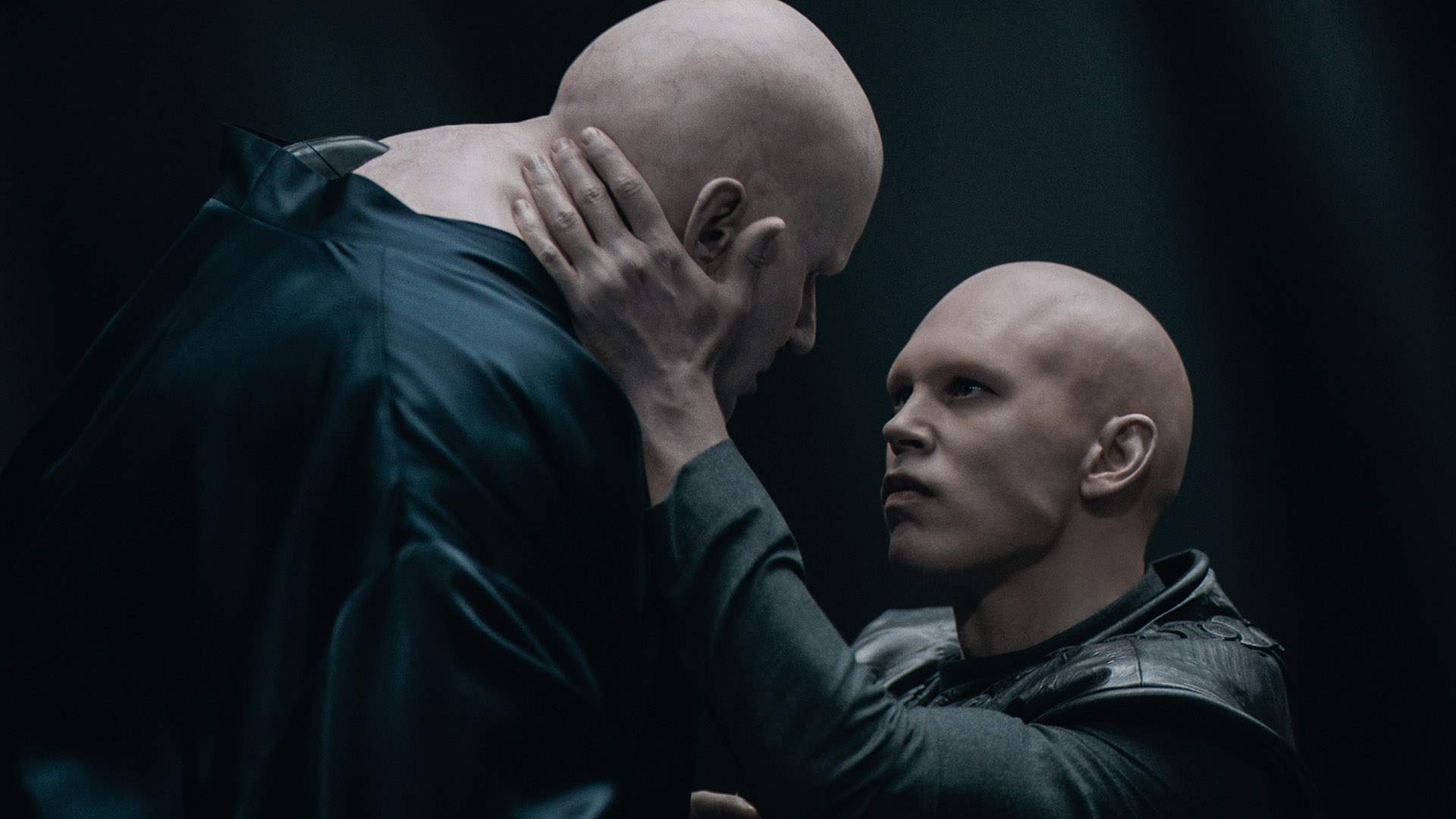
All work that's outside — the sun, effectively anything that's hit by sun or the effects of sun — is an infrared type of light with no visible colour. There are some scenes where it's inside in Giedi Prime and it's muted colours, but it's not black and white. When anybody comes from the Baron's box, for example, when they're inside in artificial light, let's call it, it's colour. It has colour. But then when they get hit by the sun, they become just this white, almost-ghoulish kind of effect.
The benefit of that was that it really helped us tell that story of why the Harkonnen look the way they do — why they look so pale, and why they have alopecia, and why they have such gaunt, pale, pasty skin. It's because they don't get any of the ultraviolet from from the real sun. That's a backstory that never gets discussed in the movie, but hopefully with an audience it starts to become logical that you go 'okay, I get why they're so white and they need protection in the desert, because they can't handle the UV'.

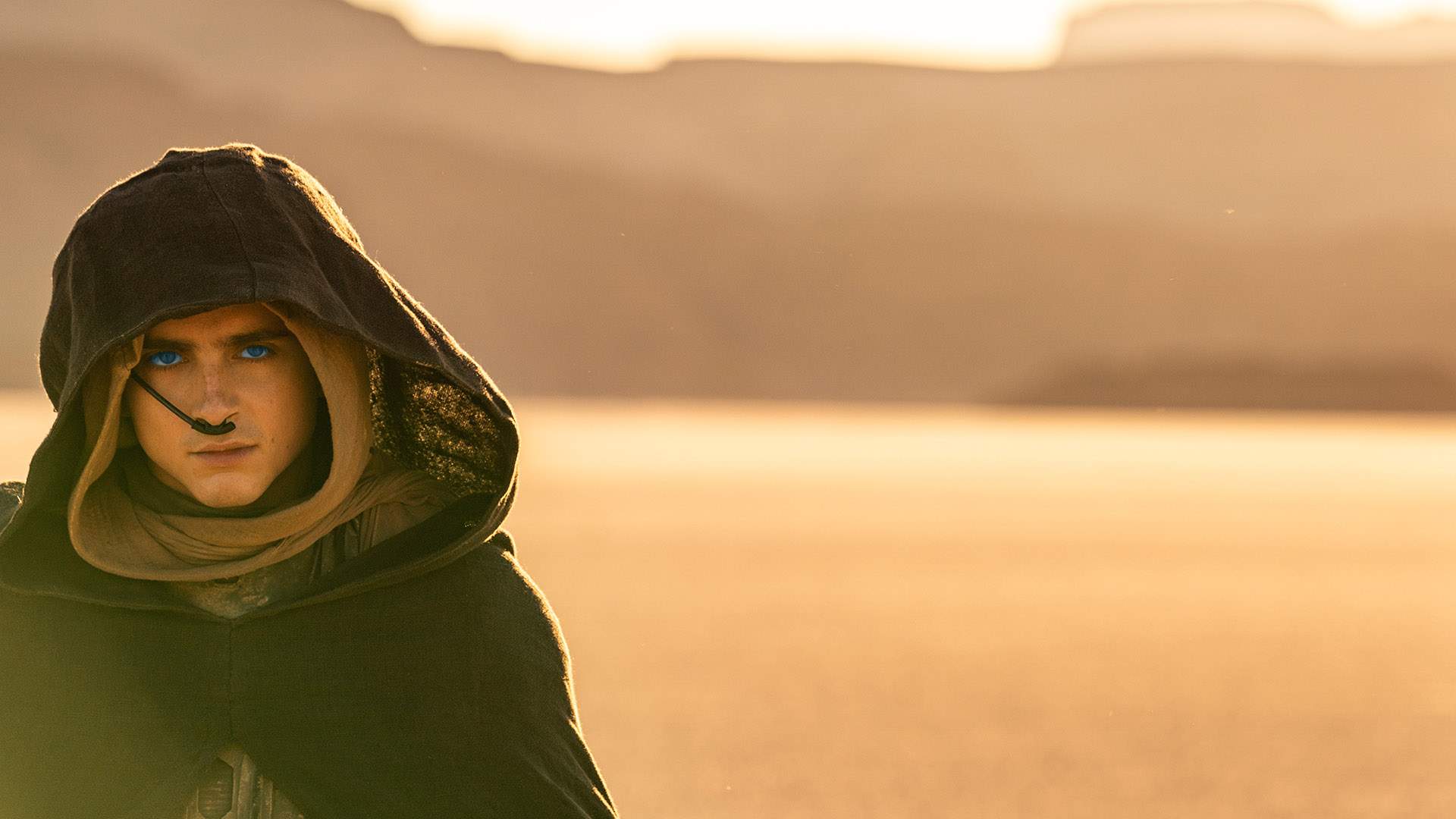
On Balancing the Epic and the Intimate On-Screen
"I love extremes. I love dramatic extremes. I'm visually quite dramatic, I would like to think. So there's nothing more fantastic to me than seeing a closeup, then cutting to an extreme wide [shot] and seeing scale and grandeur that we possibly can't even imagine.
It's something that I love about the Star Wars series. These guys get on the Millennium Falcon, which is massive, and then the Millennium Falcon flies up close to the Death Star, which then the Millennium Falcon becomes tiny. It's all about scale. It's people that we know get into something big, and then that big thing flies into something even bigger, which is beyond belief.
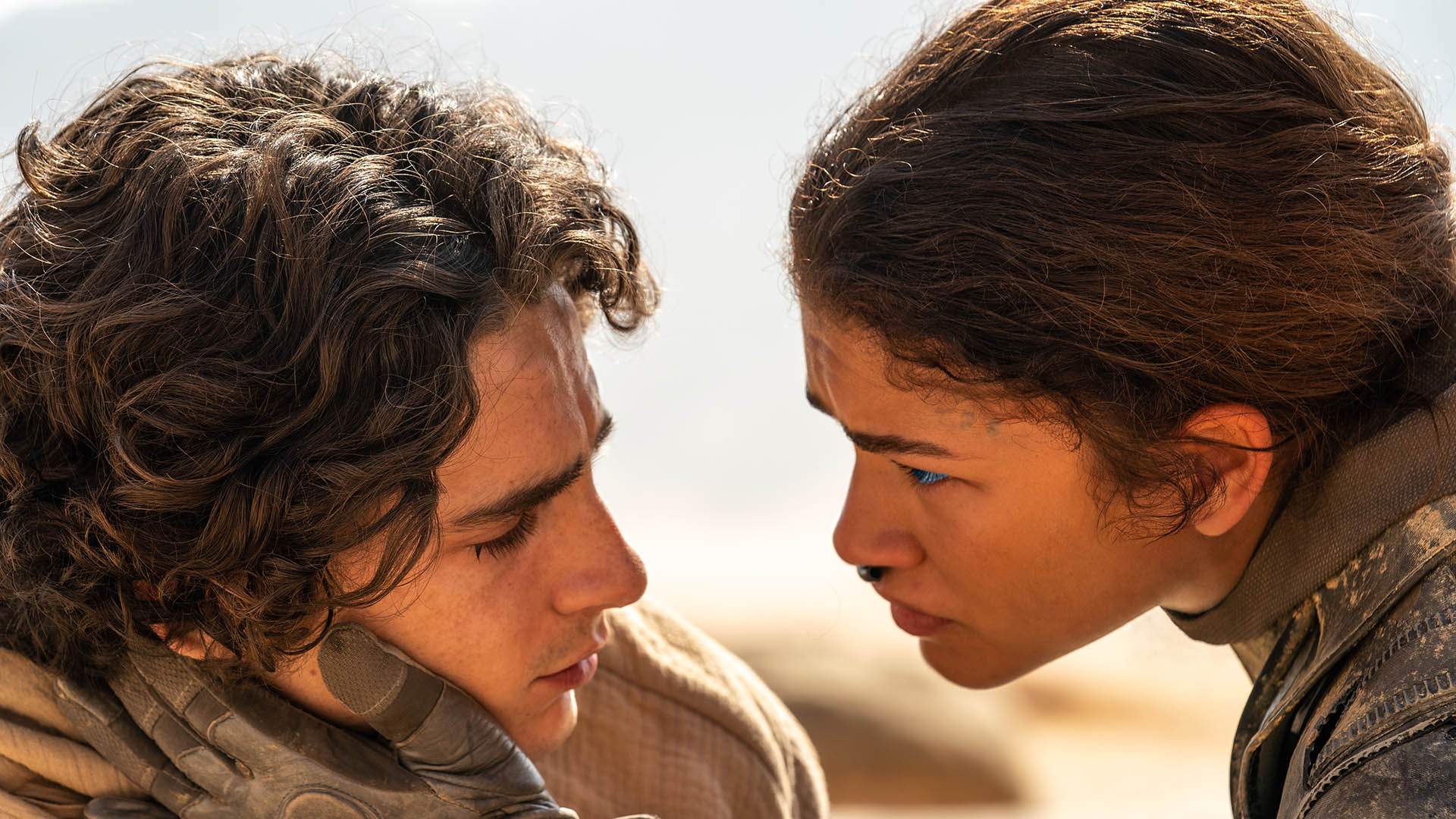
It's hard to imagine that scale. As humans, we rarely come across scale that that absolutely floors us. I know people start talking about things like the Grand Canyon, they start talking about massive structures — massive earth-mining machinery, about the scale of those things that just literally blow their mind.
So with filmmaking, we have that ability to create this scale that's beyond beyond this world, but mindblowing. Like those worms, I mean, those worms are beyond massive."

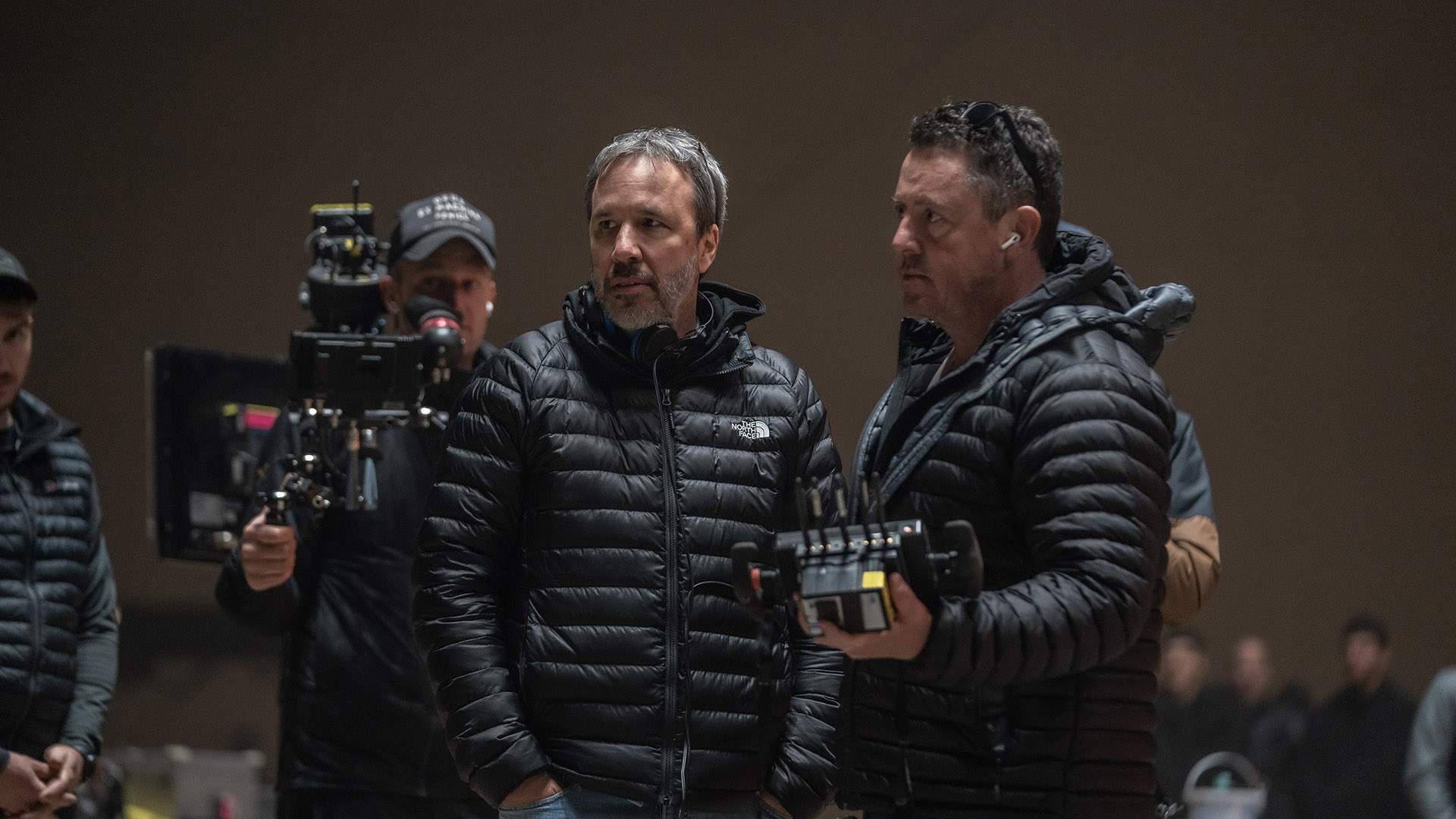
On Making a Third Dune Film If It Comes to Fruition
"Absolutely. I love working with Denis, so anytime Denis asks me to do a movie, I'll be there if the stars align — I'd be absolutely there.
How it would look is a different story. I can't tell you what that would be, and that's what's fun about the process of discovering what a film is. Because Part Three would not look like Part One and Part Two. It would look different, and I don't know how that would be different at this point, which is fun because it means you got to work it out — and we could be talking again in whenever it comes out, five, ten years, whatever. If I get the chance to shoot it, then I'd love to talk about how different we made it.
But at the moment, I don't know. It's a funny thing. I would love to do it. And if it comes off for me and the timing's right, fantastic."

Dune: Part Two opened in cinemas Down Under on Thursday, February 29, 2024. Read our reviews of Dune: Part One and Dune: Part Two.
